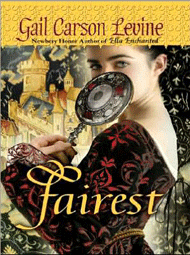It's been longer than usual. And because apologizing would be useless (let's be honest, Tracy, who reads this silly little blog?), I won't do it. But I will offer some explanation:
Though I quit my dead-end black hole of a retail job, all of my newly "free" time got lost in a tornado of picturebooks, nineteenth century novels, the Bible, soul-searching, and self-loathing. What's a girl to do? Nothing. And that's what I did. Though I somehow managed to complete the semester, a paralysis of the creative juices and of the positive energies took me over. It was not happy times. Worry, hand-in-hand with loneliness, is consumptive.
I haven't entirely snapped out of it, but I have enough to want to share with you some of the things I've been reading of late (we're talking since March, give or take).
Many moons ago, I read a (huge) excerpt of Chrys Ingraham's White Weddings: Romanticizing Heterosexuality in Popular Culture for an undergraduate class at Pitt. I decided to take up the whole thing, and, though a tad dated (black and white pictures, analysis of 90s movies), it's wunderbar. It articulates so well how ingrained marriage (most specifically the marriage of white, heterosexual folks) is in our culture. Look for wedding references in (what Ingraham calls) the tertiary wedding market. It's kind of icky when you think about how many toothpaste, cellphone, and fast food commercials embrace the theme of wedding-as-backdrop or wedding-as-vehicle-for-consumption. America.
At a similar time, I had reread Gail Carson Levine's Ella Enchanted for a class project, and then went on to read Fairest. Certainly Ella has a marriage plot, but it's way more progressive than, let's say, any Disney movie ever. Anyway, Ella Enchanted stands out and alone. It is arguably my favorite book from childhood, and probably even adulthood. A remake of the Cinderella story, it is refreshingly girl-empowered. However, it does make some problematic stances on food and eating (but, so does The Hunger Games, eh?). In short: it's the best. The movie, on the other hand, truly repulsive. I've never been more disappointed.
Fairest is pretty decent, also. This one is a kind-of Snow White adaptation. It's nothing like Ella, because really, it couldn't be, but it takes place in the same world, and there are some tacky-yet-pleasureful allusions to Ella. Fairest is the first novel for girls that I recall having a big protagonist--big as in "tall and fat and decidedly the opposite of dainty." (Examples of other books that have fat or big girl protagonists are welcome.) And though the reader never really knows the extent of Aza's bigness or ugliness, she is certainly no standard beauty. Despite this, she gets to become a princess.
I dig it.
I wish she didn't have to be fat and ugly though. But, it's fine. At least she wasn't Cinderella perfect or even Jennifer Lawrence perfect. Oh, and she's adopted. This book seems to have all the things I craved in a novel when I was ten. Or eight. Or twenty-two.
Yet the cover for Fairest is really ridiculous. What's that about? Ugh.

.jpg/200px-Ella_enchanted_(book_cover).jpg)

No comments:
Post a Comment